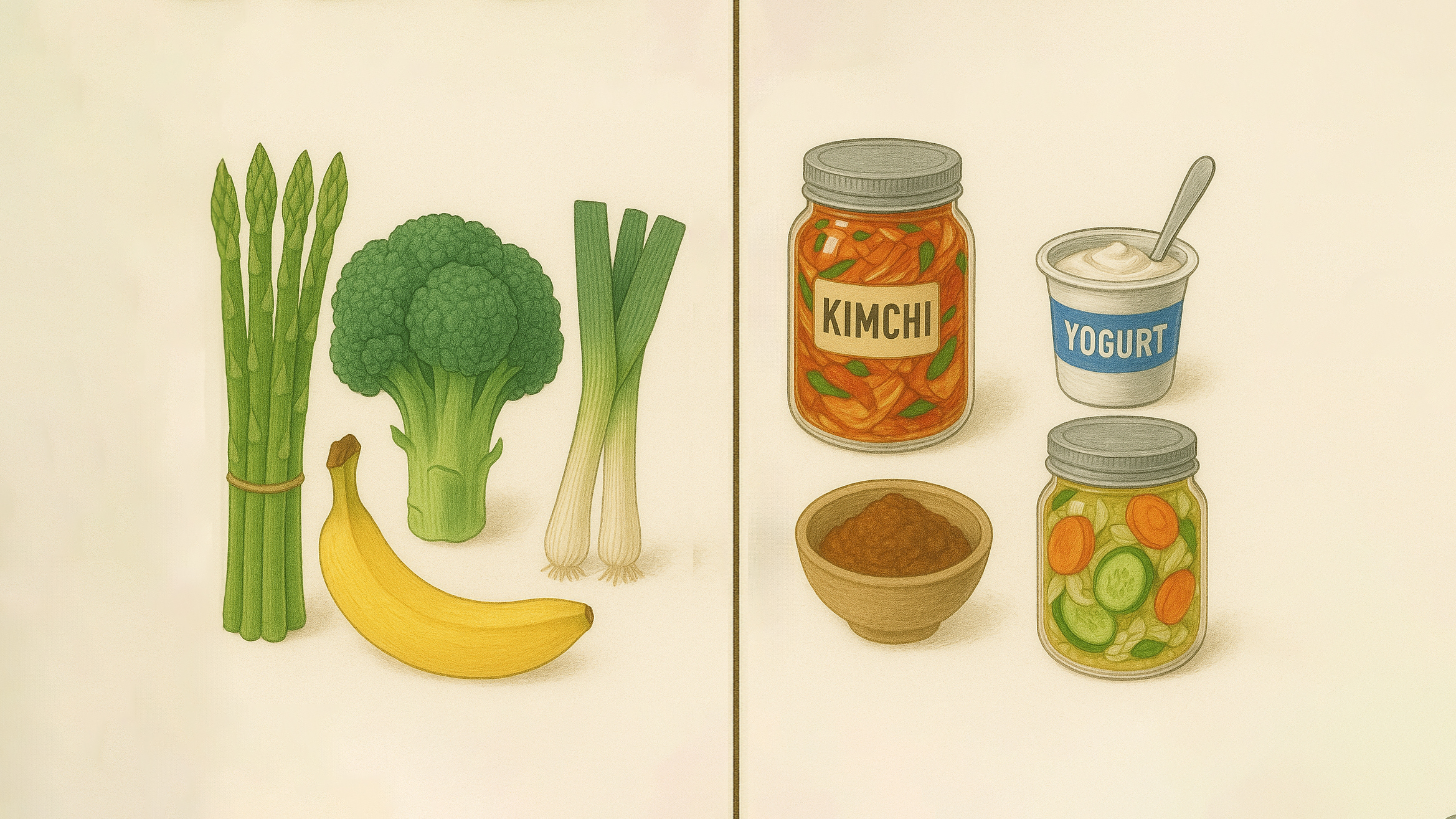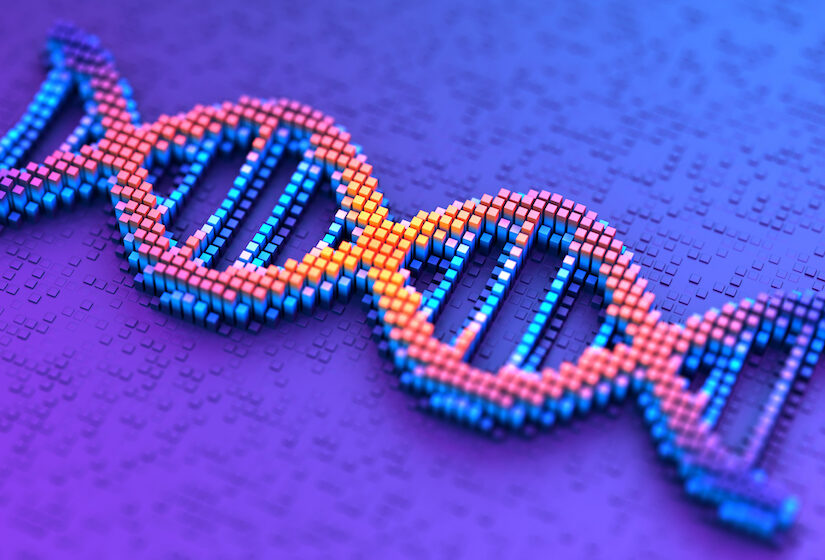You have a unique gut microbiome signature as personal as a fingerprint – and it’s quietly controlling your weight, mood, and energy levels. Learning how to improve gut microbiome health is one of the most powerful steps you can take for better digestion, sustainable weight management, and mental wellness. The good news? Your microbiome responds quickly to positive changes, making it possible to transform your health from the inside out.
On this page
- What Is Your Gut Microbiome and Why Does It Matter?
- How Gut Bacteria Affect Weight Loss and Metabolism
- Gut Microbiome and Mental Health: How Bacteria Control Your Mood
- How Gut Microbiome Affects Immune System Health
- Signs of Poor Gut Health: How to Recognize Microbiome Problems
- Foods That Feed Your Good Bacteria
- How Long Does It Take to Improve Gut Microbiome?
- How to Improve Gut Microbiome: Your Personalized Action Plan
- Frequently Asked Questions
From the moment you wake up until you fall asleep, trillions of microscopic allies are working behind the scenes, influencing whether you feel energized or exhausted, focused or foggy, confident or anxious. These invisible partners are constantly communicating with your brain, immune system, and hormones – making decisions that ripple through every aspect of your digestive health and overall wellbeing.
Your gut microbiome is home to beneficial bacteria that play crucial roles in metabolism, mood regulation, and immune function. When your gut bacteria are balanced and diverse, you experience better energy, clearer thinking, and more stable moods.
No two people have identical microbiomes, making yours as distinctive as your fingerprint.
This internal universe is staggeringly complex – home to over 1,000 different species of bacteria, viruses, fungi, and other microorganisms (1). What makes this even more fascinating is that your specific collection is shaped by everything from how you were born, where you live, what you eat, and even your stress levels. No two people have identical microbiomes, making yours as distinctive as your fingerprint.
What Is Your Gut Microbiome and Why Does It Matter?
Here’s something that might surprise you: while bacterial cells in your body roughly equal your human cells in number (1), your microbiome carries vastly more genetic information. The microbial communities in your body contain hundreds of times more genes than your human genome (2, 3). This means your microbial partners bring an enormous toolkit of biological functions that your human cells simply can’t perform on their own.
When these microbes flourish, you flourish. When they struggle, you struggle. When they crave sugar, so do you. And when they work at their best, your body does too. This isn’t just a poetic turn of phrase: it’s a biological reality backed by thousands of research studies.
How Gut Bacteria Affect Weight Loss and Metabolism
If you’ve struggled with weight despite eating well and exercising, your microbiome might hold the answer. Research shows that lean individuals have distinctly different gut bacteria profiles than those who are overweight (4). A systematic review and meta-analysis of 47 trials with 1,916 participants (81% female) found that weight loss was associated with significant increases in the abundance of Akkermansia and overall gut microbiota diversity (5). We’ve already covered how Akkermansia muciniphila can support weight loss.
Specific changes that occur with improved gut diversity include (6):
- Enhanced metabolism and energy utilization from food
- Better regulation of appetite-controlling hormones like leptin and ghrelin
- Reduced chronic inflammation that contributes to weight gain
- Improved insulin sensitivity for better blood sugar control
Targeted dietary interventions can work wonders for weight loss. Comparing different gut modulation strategies, researchers reported that probiotics showed showed significant reductions in BMI, body weight, and fat mass compared to placebo (7). Notably, they found that single-strain Lactobacillus probiotics were more effective than multi-strain formulations for weight loss.
Best Probiotics for Weight Loss: Which Actually Work?
*All studies conducted for 12 weeks (except L. plantarum TENSIA: 3 weeks)
| Strain | Daily Dose | BMI Reduction | Weight Loss | Fat Mass Loss | Study Quality |
|---|---|---|---|---|---|
| L. gasseri SBT2055 | 50 billion CFU | ✓ Significant | ✓ Significant | ✓ Significant | Multiple studies |
| L. gasseri BNR17 | 60 billion CFU | ✓ Significant | ✓ Significant | ✓ Significant | Single study |
| L. rhamnosus CGMCC1.3724 | 0.32 billion CFU | ✓ Significant | ✓ Significant | ✓ Significant | Single study |
| L. plantarum TENSIA | 150 billion CFU | ✓ Significant | ✓ Significant | Not measured | Single study |
| L. casei Shirota | 19.5 billion CFU | Limited effect | Limited effect | Not measured | Single study |
| L. curvatus HY7601 + L. plantarum KY1032 | 5 billion CFU (combined) | ✓ Significant | ✓ Significant | ✓ Significant | Combination strain |
Key Insights
🏆 Most Effective:
- L. gasseri SBT2055 – Consistently effective across multiple studies
- L. gasseri BNR17 – Highest individual weight loss results
💡 Surprising Finding:
- L. rhamnosus CGMCC1.3724 – Very effective despite extremely low dose (0.32 billion CFU)
⚖️ Dose Range:
- Effective doses ranged from 0.32 to 150 billion CFU
- Sweet spot appears to be 1-60 billion CFU for 12+ weeks
🎯 Best Overall Choice:
- L. gasseri strains showed the most consistent and significant results across BMI, weight, and fat mass reduction.
Note: The paper emphasized that single-strain probiotics were more effective than multi-strain formulations for weight loss.
When looking for probiotics to support your weight loss journey, it’s important to remember that probiotics work best when you’re already eating prebiotic-rich foods. Prebiotics feed the probiotics you consume, helping them survive, multiply, and colonize your gut more effectively.
Gut Microbiome and Mental Health: How Bacteria Control Your Mood
Scientists now call the gut your second brain, and for good reason. Your intestines contain over 500 million neurons, and this gut-brain axis means your microbiome directly influences your mental and emotional wellbeing (3).
Serotonin Production: Your Gut’s Role in Happiness
One of the most significant discoveries in microbiome research is that approximately 90% of your body’s serotonin is produced in your gut (8, 9, 10). Serotonin is often called your “happy hormone” because it regulates mood, sleep, and emotional balance.
Research from Caltech demonstrates that specific gut bacteria, particularly spore-forming bacteria, promote serotonin biosynthesis from specialized enterochromaffin cells (8). When mice lacked these beneficial bacteria, their gut serotonin levels dropped by more than 50%. When the bacteria were restored, serotonin levels returned to normal.
This gut-brain connection explains why your microbiome directly influences :
- Mood regulation and emotional resilience
- Mental clarity and focus
- Stress response and anxiety levels
- Sleep quality and circadian rhythm regulation
Your Microbiome and Immune System Health
Approximately 70-80% of your immune system is located in your gut (11). This makes your microbiome the primary training ground for your immune cells, teaching them to distinguish between harmful invaders and beneficial substances.
A balanced, diverse microbiome supports immune function by:
- Training immune cells to respond appropriately to threats
- Maintaining the integrity of your gut barrier
- Producing antimicrobial compounds that fight pathogens
- Regulating inflammatory responses throughout your body
Research shows that individuals with higher gut microbiota diversity have better immune function and health outcomes (12). This connection is particularly important for women experiencing hormonal changes, as estrogen fluctuations can impact both gut health and immune function (13).
Signs of Poor Gut Health: How to Recognize Microbiome Problems
Your gut health affects far more than just digestion, yet digestive issues are often the first warning signs of microbiome imbalance. When your gut bacteria are out of balance, you might experience constipation, diarrhea, chronic bloating, or frustrating cycles between all three.
Poor microbiome health also impairs nutrient absorption – your body can’t effectively extract vitamins and minerals from food when beneficial bacteria aren’t functioning properly. This creates a cascade of symptoms throughout your body.
Modern lifestyles have disrupted our digestive health through processed foods, chronic stress, and frequent antibiotic use. While effortless elimination should be natural, millions accept ongoing digestive discomfort as “normal.”
If you’ve been experiencing persistent digestive symptoms for weeks or months, your gut bacteria ecosystem likely needs attention. Research has linked microbiome imbalances to symptoms throughout the body:
Common Signs of Gut Microbiome Imbalance
Digestive Issues
- • Irregular bowel movements
- • Bloating and gas
- • Abdominal pain
- • Food intolerances
Energy & Mood
- • Persistent fatigue
- • Brain fog
- • Mood swings
- • Sugar cravings
Immune System
- • Frequent infections
- • Slow wound healing
- • New allergies
- • Autoimmune symptoms
Skin & Appearance
- • Acne or eczema
- • Dull skin
- • Hair loss
- • Premature aging
If you experience multiple symptoms across categories, consider consulting a healthcare provider.
This is why it’s absolutely crucial to monitor any recurring symptoms, and to investigate if they simply won’t go away.
Foods That Feed Your Good Bacteria
Research from the American Gut Project – one of the largest microbiome studies with over 10,000 participants – found that people who consumed more than 30 different plant foods per week had significantly more diverse gut bacteria than those eating 10 or fewer plant varieties per week (14).
| Food Category | Purpose | Examples |
|---|---|---|
| Prebiotic Foods | Feed beneficial bacteria | Asparagus, garlic, onions, leeks, bananas (slightly underripe), apples, oats, barley, whole grains, Jerusalem artichokes, chicory root, flaxseeds, chia seeds |
| Fermented Foods | Provide live beneficial bacteria | Organic yogurt with live cultures, kefir (dairy or plant-based), sauerkraut, kimchi (unpasteurized), kombucha (low-sugar varieties), miso, tempeh |
| Foods to Limit | Can harm beneficial bacteria | Ultra-processed foods, artificial sweeteners, excessive added sugars, food emulsifiers and additives |
Researchers from Stanford revealed that fermented foods may be one of the most powerful dietary tools for fighting inflammation and boosting gut health. In a 10-week trial of 36 healthy adults, those who consumed fermented foods like yoghurt, kimchi, and kombucha tea experienced increased gut microbiome diversity and a significant decrease in 19 inflammatory proteins linked to chronic diseases (15). Remarkably, these anti-inflammatory benefits were consistent across all participants in the fermented food group, while those eating a high-fiber diet showed no reduction in inflammatory markers despite consuming plenty of vegetables, whole grains, and legumes. The takeaway is simple: eating fermented foods daily – like a cup of yogurt, some sauerkraut, and an afternoon kombucha – could be an accessible and effective strategy for reducing chronic inflammation and supporting long-term health.
How Quickly Can You See Changes?
Luckily, your microbiome can shift remarkably quickly. Research shows that while gut bacteria composition can shift within 24-72 hours of dietary changes (16) meaningful health improvements typically follow this timeline:
- Initial digestive changes: 1-2 weeks
- Sustained symptom improvements: 1-3 months
- Metabolic and weight changes: 3-6 months of consistent habits
- Long-term health benefits: 6+ months
How Long Does It Take to Improve Gut Microbiome?
One of the most common questions people ask when starting their gut health journey is: “When will I see results?”
The answer depends on what changes you’re making and what improvements you’re measuring. Existing research indicates that the timeline varies significantly depending on what changes you’re making and what improvements you’re measuring.
Immediate Changes (24-72 Hours)
Your gut microbiome begins responding to dietary changes remarkably quickly. Studies show that significant shifts in bacterial populations can occur within just 24-72 hours of changing your diet (16). However, these initial changes are primarily compositional shifts rather than functional improvements you’ll notice.
Short-term Changes (1-2 Weeks)
While we don’t have specific research on very short-term improvements, many people report initial digestive changes like reduced bloating or more regular bowel movements within the first couple of weeks of implementing gut-healthy habits.
Medium-term Benefits (10+ Weeks)
Research on fermented foods provides concrete evidence for this timeframe. In a 10-week study, participants who consumed fermented foods like yogurt, kimchi, and kombucha experienced increased gut microbiome diversity and significant decreases in inflammatory markers (15). This suggests that meaningful anti-inflammatory benefits can develop over 2-3 months of consistent fermented food consumption.
Weight-Related Changes (12+ Weeks)
For those interested in weight management, research specifically shows that probiotic interventions lasting 12 weeks demonstrate significant reductions in BMI, body weight, and fat mass (7). This indicates that metabolic improvements require at least 3 months of consistent intervention.
What This Means for You
Based on the available research:
- Bacterial changes: Begin within days
- Anti-inflammatory benefits: Measurable at 10+ weeks
- Weight/metabolic changes: Significant at 12+ weeks
- Individual variation: Likely substantial, though not well-studied
Setting Realistic Expectations
Remember that everyone’s starting point is different. If you’ve had gut issues for years, it may take longer to see dramatic improvements. However, most people notice some positive changes within the first 2-4 weeks of consistent gut-healthy habits.
The key is consistency rather than perfection. Small, daily actions compound over time to create significant improvements in your gut microbiome health.
The Long-Term Investment in Your Health
Ensure your gut’s integrity, by sustaining a lifestyle that supports it, and you establish a gut ecosystem that allows you to more effortlessly eliminate all waste and toxic byproducts. Think of microbiome health as one of the smartest investments you can make in your future self.
Women who prioritize gut health consistently report:
- More stable energy levels throughout the day
- Better emotional resilience during stressful periods
- Easier weight management as they age
- Fewer illnesses and faster recovery times
- Improved confidence and overall vitality
- Better sleep quality and mental clarity
The beauty of focusing on your microbiome is that the benefits compound over time. Each healthy choice you make today creates a ripple effect that supports your wellbeing for years to come.
How to Improve Gut Microbiome: Your Personalized Action Plan
| Timeline | Focus Area | Action Steps |
|---|---|---|
| Week 1-2 Gentle Beginning | Foundation Building | • Add one fermented food daily • Increase water intake for digestive health • 10-minute post-meal walks • Practice mindful eating habits |
| Week 3-4 Building Momentum | Dietary Expansion | • Target 25-30g fiber from diverse plants • Include prebiotics with each meal • Establish 7-9 hour sleep routine • Begin stress management practice |
| Week 5-12 Transformation | Sustainable Habits | • Aim for 30 different plants weekly • Consider quality probiotic supplement • Maintain consistent meal timing • Monthly progress assessments |
Key Takeaways: Your Gut Health Action Plan
Your gut microbiome is your personal ecosystem that influences everything from your daily energy to your long-term disease risk. The good news? You have significant control over this system through your daily choices.
Start with these evidence-based steps:
- Diversify your plant food intake. Research shows aiming for 30 different plant foods weekly optimizes microbiome diversity
- Include fermented foods daily. Even small amounts provide beneficial bacteria and reduce inflammation
- Prioritize fiber from whole food sources. 25-30 grams daily supports beneficial bacteria growth
- Manage stress consistently. Chronic stress directly damages gut bacteria populations
- Protect your sleep. Less than 7 hours nightly reduces beneficial bacteria diversity
- Stay hydrated and move regularly. Both support healthy digestion and microbiome function
Remember, sustainable change happens gradually. Your microbiome took years to develop its current state, so be patient as you guide it toward optimal health. Every meal is an opportunity to nourish the microscopic allies working tirelessly to support your wellbeing.
The investment you make in your gut health today will pay dividends in energy, vitality, and resilience for decades to come. Your future self – and trillions of microbial cohabitants – will thank you.
Frequently Asked Questions
How long does it take to improve gut microbiome health?
While gut bacteria composition can shift within 24-72 hours of dietary changes, meaningful health improvements typically develop over 1-3 months of consistent healthy habits. Long-term benefits for weight management and immune function may take 3-6 months to fully manifest.
What are the best foods for gut microbiome health?
The best foods for gut health include prebiotic-rich foods like garlic, onions, asparagus, and bananas, plus fermented foods like yogurt, kefir, sauerkraut, and kimchi. Aim for 30 different plant foods per week to maximize microbiome diversity.
Can poor gut health cause weight gain?
Yes, research shows that imbalanced gut bacteria can contribute to weight gain by affecting metabolism, appetite regulation, and inflammation. Studies demonstrate that people with diverse, healthy microbiomes have better weight management and metabolic health.
How does gut health affect mental health and mood?
The gut-brain connection is powerful – approximately 90% of serotonin (your “happy hormone”) is produced in your gut. Healthy gut bacteria help regulate mood, reduce anxiety, and improve mental clarity through neurotransmitter production and inflammation reduction.
Do I need a gut microbiome test?
While gut microbiome tests can provide insights, they’re not necessary for most people to improve their digestive health. Focus on eating diverse plant foods, fermented foods, and limiting processed foods. If you have persistent digestive issues, consult a healthcare provider.
What’s the difference between probiotics and prebiotics?
Probiotics are live beneficial bacteria found in fermented foods and supplements. Prebiotics are fibers that feed your existing good bacteria. Both are important – prebiotics from diverse plant foods often provide more lasting benefits than probiotic supplements alone.
Can antibiotics damage gut microbiome health?
Yes, antibiotics can significantly disrupt gut bacteria diversity and may take months to years to fully recover. While sometimes necessary for infections, avoid unnecessary antibiotic use and focus on rebuilding your microbiome with fermented foods and diverse plant fibers afterward.



